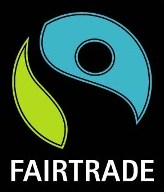Fairtrade International which introduced Fairtrade certified cotton in 2005 is now extending its approach to the entire textile value chain, for which it has prepared a draft.

The organisation’s goal is to reach often-overlooked workers along the supply chain, like weavers and dyers, so that they too can benefit from Fairtrade,” it said in a press release.
Fairtrade International ran mock audits with textile producers in India and South Africa during the last year to test out a Fairtrade textile standard for the whole supply chain.
According to the agency, a draft of the standard is now being put to public consultation and civil society organisations, producers, traders and experts are called upon to comment and contribute.
“The end of April marks two years since the collapse of Rana Plaza, yet no substantial improvements have been made for workers in the textile industry,” FairTrade said.
With over 20 years’ experience in advocating better working conditions for small producers and hired workers, Fairtrade International is now taking on the challenge of creating a comprehensive textile standard.
A finished piece of clothing is the sum of many individual steps, from spinning to weaving or knitting, to dyeing and decorating.
Fairtrade added that its goal is to improve the working conditions for everyone involved in textile production, at all stages in the chain.
The standard includes requirements relating to unionisation and freedom of association, workers’ health and safety, and environmental regulations.
The independent certifier Flocert will be responsible for monitoring these requirements and Fairtrade’s approach goes beyond certification and monitoring to offer support and training to producers in developing countries.
Fairtrade certified organisations have long been required to pay the respective national minimum wage or regional industry wage, yet these often fall short of a sustainable income for workers.
Fairtrade International has strengthened its requirements around living wage, which will be included in the new textile standard.
The draft version of the Fairtrade textile standard developed in cooperation with various stakeholder groups and tested directly in producer countries has now been put to public consultation till May 8.





